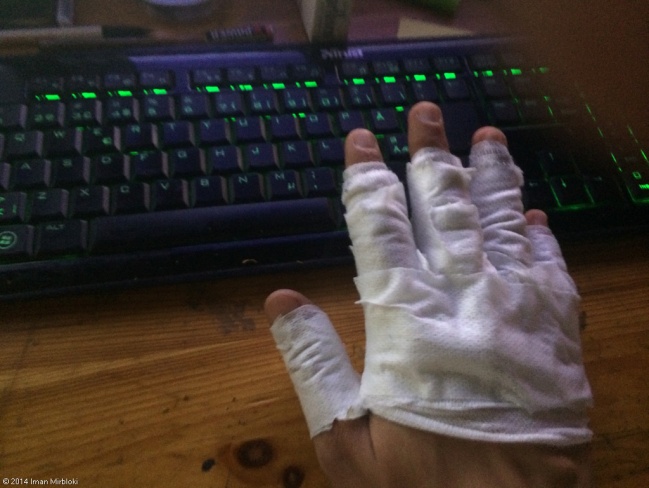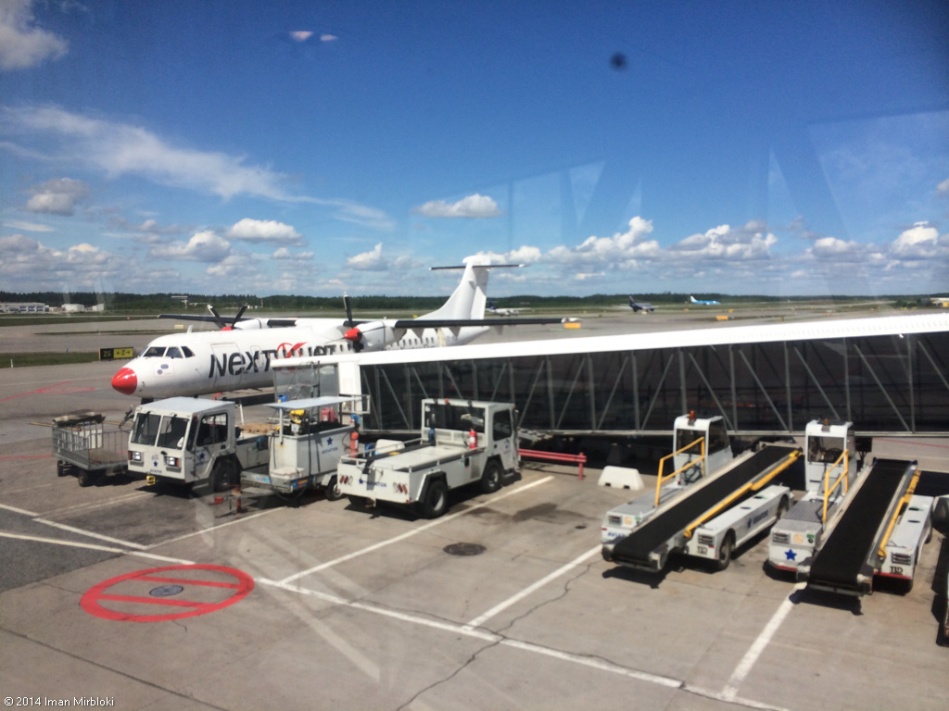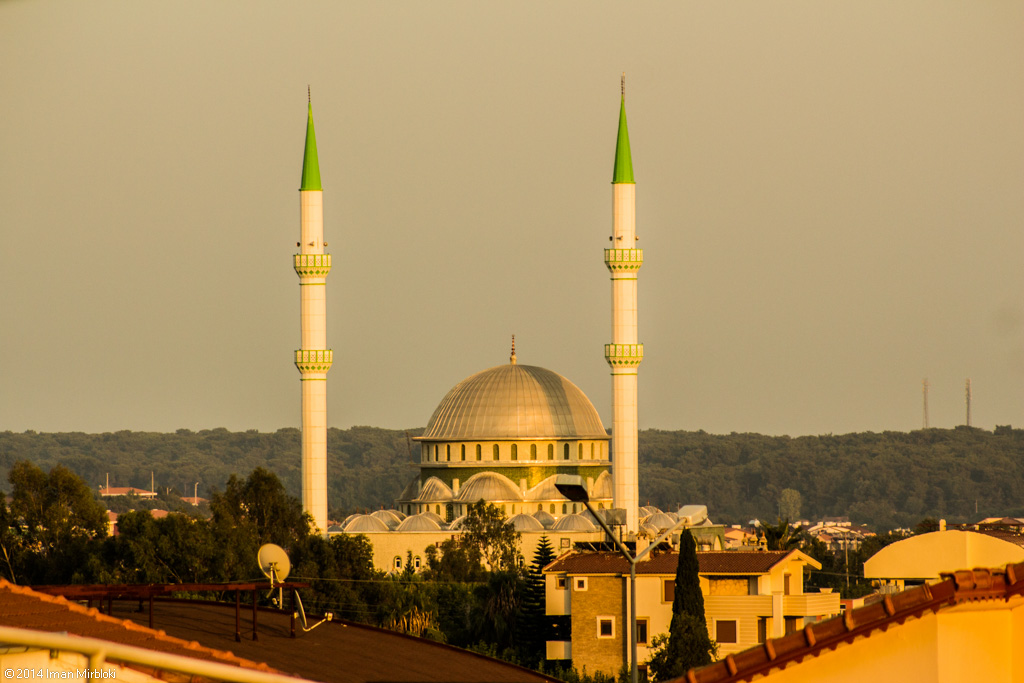“Any words that have ‘currency’ in them attract a lot of attention from certain governmental institutions.”
– Orhan, QuazarCoin Founder
Introduction
It is only 1 am as I wake up with my body stiff and my brain screaming: “Go back to sleep!” While it is still nine hours before the flight takes off, I remember that it is a couple of hours of driving to the airport and I have to check-in two hours before an international flight from the E.U.
My name is Iman Mirbloki and I’m an investigative reporter.
Actually, it’s the first time I am going out into the field since 2007. Just a few days ago, I was the CSO (Chief Security Officer) at one of the oldest Bitcoin exchanges in the world, namely BTCX Sweden.
However, after a year as CSO and CTO (Chief Technological Officer) before that, I felt it was time to move on and do something new. I had already started working as a freelance reporter for a Swedish news-agency part-time when still at BTCX, but it was boring domestic political reporting. I missed the thrill and the adventures as a journalist from the old days, and it had been itching in my head for years now. My Press-ID was still valid a few more weeks, so I had no trouble going back, but this time it was different.
The reasons for which I left reporting in 2007 were very complex. I was behind or in front of a camera back then. Now I was supposed to write and investigate, and that is a very different (and difficult) world. If picture is worth a thousand words, then 25 images are, well, about twenty-five thousand words every second.
But as an investigative reporter, it is rare to get people’s attention and most of the time nobody wants to talk to you. It is much different when the TV-camera is rolling, however, because everybody wants to shine. They want their 15 minutes of fame on TV. While questioning people with a pen and paper is not as dramatic.
I had reported from many corners of the world and had seen disturbing things that still echo in my mind. My old partner and camera-assistant, Catalan “Catalin” Marthe was now working at a nightclub and the whole world had changed.
“Catalin” is/was one the world’s best Rugby players and having him on my side and with me in the field was like having a free-of-charge bodyguard 24/7, so I was very arrogant at that time. We met with terrorists, made interviews with suicide-bombers and traveled to conflict-zones and I always felt safe having this big guy around.
Now, however, I was on my own and there were no TV-cameras, and worst of all, I was supposed to write - something you are not used to as a TV-reporter. When you are in front of a TV-camera, most of the time you have to improvise. Ever noticed the delay between the TV-anchors question and the reporter sending live? That is because there are several seconds delay at the reporters end and you have to guess what the question will be, before the anchor is finished. You need to know the answer before the question has been asked.
Anyways, I love challenges and I was about to get into a new one.
The Mission
Having no choice, I fooled my fiancé to come with me since she had her vacation timed right with this unfolding story. Just a few days before, I “came up” with the idea that we should travel somewhere, not telling a single word that I actually was taking her on a dangerous mission. The destination was Turkey and the reason was the disappearance of one of my contacts in the Bitcoin-sphere.
At this time, I was not working for Cointelegraph yet. I had sent my C.V just a week before and I was travelling as a freelance, hoping to find a good story that somebody might print (and pay for!).
The controversial banning of Twitter by the Turkish P.M Erdogan was still chiming on the news and I thought that it could be interesting to investigate the disappearance of my contact who also was heavily involved in the counter-measures taken by “hacktivists” on that matter. My contact was one of the highest ranking members of the largest group behind the Anonymous network and my first thought was that he had been caught.
As I was making coffee in the middle of the night waiting for my girlfriend to wake up, I managed to burn my right hand with boiling water resulting in first and second degree burns. As I was in a hurry to get to the airport, I didn’t look closely at my hand, but by the time I arrived at the airport it looked like a melting hand of a zombie.

There was no time to see a doctor, but one of the security-guards at the airport had a background as a nurse and she did her best to bandage my hand. It didn’t look much better, but at least it was protected from infections and germs I hoped.
Now, it was July 28 and 40 degrees Celsius when I arrived at Side in Turkey, where my contact used to live, going from hotel to hotel to avoid getting caught. That heat was not the best when having second degree burns and the political climate, with paramilitary police equipped with assault-rifles made me a bit nervous. We headed for the hotel and then hurried to the hospital right after we arrived.

As I landed in Turkey, I disregarded the burn-injuries and started to chase my source through the authorities, other contacts and friends but without any luck.
At the same time, an e-mail arrived from Cointelegraph stating that they had an assignment for me.
I had been offered a position in the professional team of writers, editors or any other position I had in mind. Being an investigative reporter sounded cool enough.
First Assignment
My first assignment was to interview the developer of QuazarCoin (QCN), a coin based on the advanced CryptoNote protocol.
Now, Turkey is not the best place to start looking for a guy that doesn’t want to be found and also tries to keep the origin of QCN secret (it is unfortunately not a secret anymore, or I would not disclose this information).
I found him after some research and was able to contact him directly. For his safety, his surname will be censored and/or modified and only his first name will be used throughout this article. This decision was taken after an agreement with him and some consulting with my editor-in-chief, Andrew Marshall.
Interview with the Founder of QuazarCoin
The developer of QuazarCoin, Orhan, is twenty-five years old, and is a hardworking man with a family. Between taking care of his family and developing QCN, he works as an outsourced C++ programmer for a company that develops logistics applications. He describes himself as a technologically-minded man, “you can even call me a geek,” says Orhan.
My first question is of course of political nature. In earlier contacts, Orhan mentioned that Turkey “[doesn’t] have the best environment for such things” and the mysterious disappearance of my contact was one of the issues. As mentioned before, the Turkish government is taking measures in order to control and censor the Internet, rendering the citizens without free access to the web.
This wouldn’t be controversial if this was Iran or maybe Saudi Arabia; But this country is aspiring to become an E.U member by putting warnings on cigarettes, changing the license-plate of cars to ones bearing the blue color of the EU-flag (without the stars for the meantime) and adopting the horrible illogical bureaucracy of E.U in preparation to join the union.
The very basic supporting pillars of the European Union rest on the respect of human rights, freedom of speech and constitutional justice; not lawlessness in regards to the treatment of ordinary citizens and banning the flow of information, which is essential in a democracy.
Orhan states:
“As I’ve told you [before], Turkey is now not the best place for the development of cryptocurrencies, [not] even Bitcoin. Despite the fact that our government declares that we are on the same page with the rest of the world in regards to technology and globalization, [which] is not true. The country does not have an adequate legal tax framework, data protection etc., so that you could easily do cryptocurrencies. [But] We don’t have the most stable political environment and any words that have “currency” in them attract a lot of attention from certain governmental institutions. I think this is the reason why people connected to Bitcoin or alternative cryptocurrencies do not want to show their face or their true name to the general public. Here's another reason why I've launched QuazarCoin; it helps regular people to keep their identity and private life safe.”
Cointelegraph: So that is the reason you created QCN?
Orhan: I’m a technologically-minded man; you can even call me a geek. I've always been keen on new technologies. I have been always concerned with the possibility of solving social, financial or economic issues with the help of technology. A Big Bang for something new and global may only happen at the crossroads of different fields of human knowledge. The world of cryptocurrency provides such an opportunity. In brief you get money for the same work with mining and hash counting or network maintenance when you serve as a node.
CT: When did you discover Cryptocurrencies?
OR: I've got interested in cryptocurrencies a year ago and started trading and I was successful time to time. But to tell the truth, I'm a more technically oriented person than a businessman.
BTC was a fascinating discovery for me [and] I got interested in cryptocurrencies. In time, I realized that any pioneer in a field [in crypto-sphere] would have several bugs, e.g. the funds are centralized, there is [only] a possibility of ASIC mining etc.
I managed to get to know ASIC devices and I would like to say that people should have equal opportunities. Otherwise it would be just money making money. Those who have funds buy expensive farms increase their assets. Those who [don’t have the money to buy an ASIC-miner] can't receive anything because of high difficulty.
On the other hand, I was concerned about the problem of privacy just like everybody else. The internet background surrounding us remembers everything we do, like optimizes internet search so that we could get more of those annoying commercials.
News-headlines consistently report that special services have carried out illegal surveillance. Some of the NSA employees confessed that they have been spying on their ex-girlfriends in their personal interests. It's a crazy world out there and we should protect our privacy. This should work for everybody. Do you think the government should know what book you are reading or what is the color T-short you've purchased on E-bay yesterday?
When I got to know the CryptoNote protocol something shook me. That was the thing we should develop right now. It was a protocol protecting your name, personal data and finances. It is in fact equal and it is not profitable to do ASIC, CPU and GPU mining as they are not different from one another in this case. There are few coins based on CryptoNote and one of them (Bytecoin) has been available for 2 years already and being mature was not interesting for me.
Another coin from the very beginning had some unpleasant and outrageous stories attached. So I wanted to create something more. QuazarCoin was launched fairly on May 8 2014 after discussion with community about emission curve.
QCN can become the international currency eventually. We can live in a world with no borders. Perhaps that sounds like a utopia but its reality.

I don’t think that cryptocurrencies in Turkey have an easy path ahead. There is no such thing as a specific legislation. From what I see, clear rules of the game are present only in trade – in shops and stock-exchanges, which have cryptocurrencies in their turnover.
I think that the main issue for those who are the lawmakers is whether they should see cryptocurrencies as "crypto" or "currencies". If we look at it as protocols, that would be similar to PayPal or CashU. If we look at it as a currency, we have some problems because it is decentralized. Its emission is not regulated by any state and you need more effort to track the transactions turnover.
This is a real leap towards globalization in its utopian sense. I don’t think that is what Erdogan and his government want.
CT: Some people argue that QCN may affect the crypto-community negatively, since it’s not transparent as BTC and will be used by criminals for money laundering and other financial crimes (pretty much the same as they said about BTC a year ago). What’s your comment on that?
OR: Here I would like to say that the Lira is used to commit crimes as well. There is always money-laundering, corruption and other economic offences that are unfortunately traditional in Turkey. Unlike the Bitcoin, the CryptoNote protocol which is used in QuazarCoin entirely protects the user’s data.
The government is trying to tackle our efforts to hide [it] from “Big Brother” surveillance by telling us that cryptocurrencies have been created for the black market. This is not so. You can kill with a kitchen knife but the government does not ban kitchen knives. You can't transfer 10,000 BTC so that nobody would notice it. It's easy to transfer 1 million USD.
There is an entire story behind the twitter ban and other meaningless bans. There are politicians, manufacturers, bankers, and lobbyists etc. who carry out transactions that will remain uncovered by the press.
The private life and money of every human must be sacred. But in fact, the upper crust of society has all the protection while we don't. QuazarCoin can help get this protection for those who want it.
CT: What plans do you have for further development of QCN?
OR: In the forthcoming two weeks my team will release a GUI-wallet and miner for Mac OS and Windows. Now I’m debugging the code and finishing the high-level API. Those were near-term plans. All in all, my aim is to arrange so that you can buy/sell goods and services with QCN. QuazarCoin has a wonderful flat emission curve. 50% will be emitted in the forthcoming 6 years, 25% in the next 6 years, and 12.5% after that and so on. So we have a lot of time to build up a strong infrastructure around the coin.
CT: Some people argue that Bitcoins and other virtual currencies are a threat to the Turkish economy, and others say it may actually boost the economy by reducing the high inflation and currency weakness. What’re your thoughts about it?
OR: At this point BTC and the other currencies cannot pose a threat to the economy of a country. You ask me why? That is because even BTC does not have the infrastructure to replace fiat. You don’t have a choice. When you come to a restaurant, you don’t have an option to pay with Liras, Dollars or Bitcoins. You need to spend a lot of effort to find a place where you can buy something with cryptocurrency.
BTC can't replace the national currency because it's already globalized. QuazarCoin belongs to everybody in the world. But we can create a national cryptocurrency. Such efforts have yet failed but it might be possible in the future to create a Turkish [or Swedish] cryptocurrency and I would gladly take part in such a process but that is utopian [thinking].
CT: Besides QCN, are you planning any other projects?
OR: Currently I devote all of my time to QCN and if I have any new projects they will also be entirely devoted to it.
Thank you Orhan.
We will stay tuned for the public release of the wallet and wish you the best of luck.
Did you enjoy this article? You may also be interested in reading these ones:
- Cryptocurrency 2.0 Basics: Protocols and Platforms Inspired by Bitcoin
- What the Duck: CryptoNote-inspired duckNote XDN
Coin HR - the best way to find a perfect bitcoin job or an applicant for your vacancy. We connect talent with opportunity!
